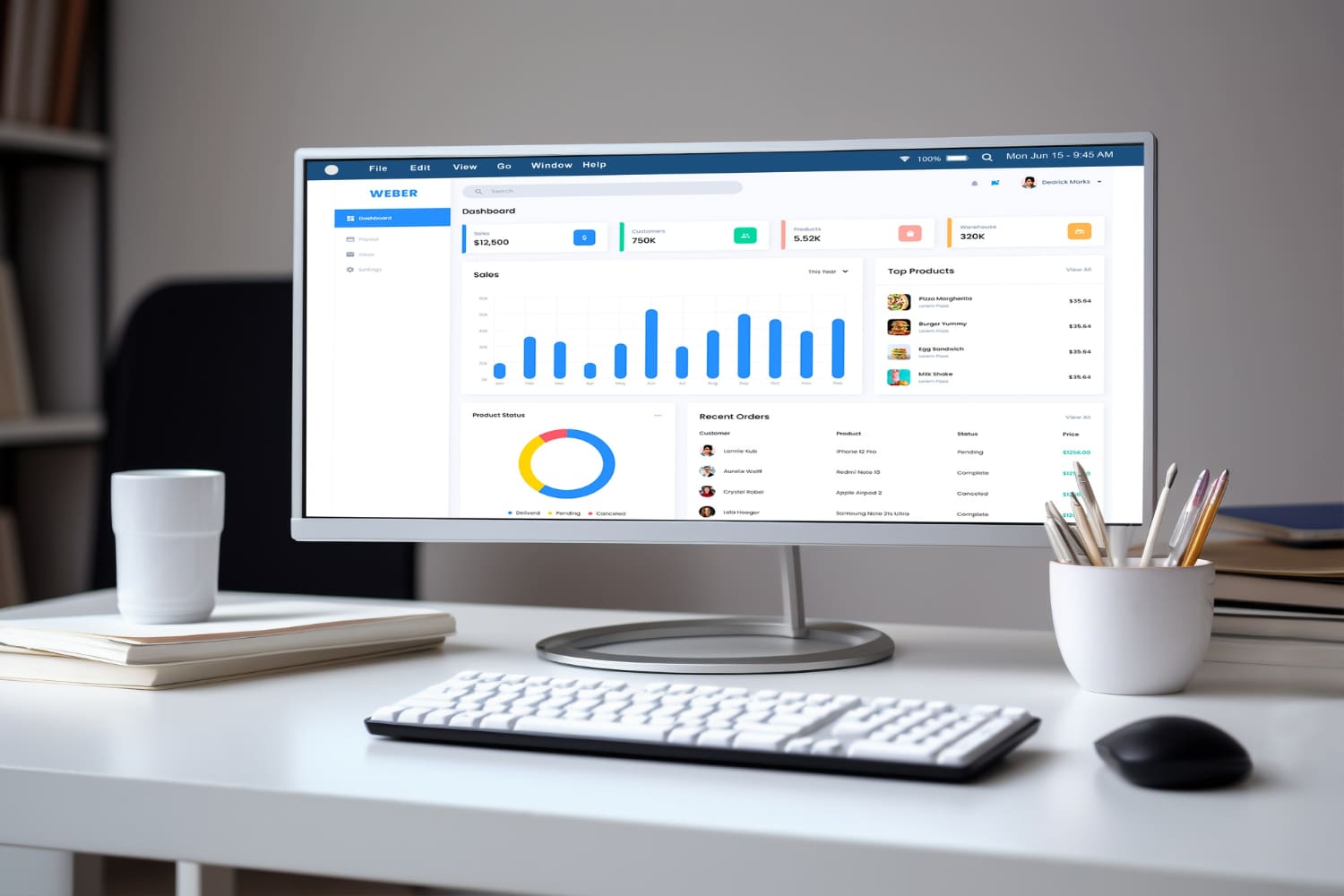Using Google Analytics to boost sales is a game-changer for small businesses. This powerful tool helps you collect and understand data about how visitors interact with your website. Analyzing this information lets you make better decisions and refine your marketing strategies.
Setting up Google Analytics is the first step towards unlocking valuable insights. When you link it with tools like Google Search Console, the data becomes even more helpful. Knowing what to look for and how to customize tracking options for business owners can make a significant difference in managing online presence and driving sales.
By diving into critical metrics, you can pinpoint what’s working and what’s not. Understanding conversion rates, bounce rates, and other critical data points helps you adapt your approach to meet your customers’ needs better. Creating custom reports allows you to focus on what’s important, making it easier to strategize and achieve your business goals. Let’s explore the vital steps and strategies to maximize the potential of Google Analytics for your small business.
Setting Up Google Analytics for Success
Properly setting up Google Analytics is an essential step for making data-driven decisions. First, you can create a Google Analytics account and add your website by following the setup wizard. Please enter accurate information, including your website’s URL and industry category. After completing these steps, Google Analytics will generate a tracking code. This code must be inserted into the header section of each page on your website to enable data collection.
Linking Google Analytics with tools like Google Search Console can offer even deeper insights. By integrating these tools, you’ll get access to valuable data about how users find your website, which keywords they use, and your site’s overall health. This can greatly enhance your ability to fine-tune your SEO and marketing strategies.
To further customize Google Analytics for your small business, you can set up tracking options tailored to your needs. For example, you might want to track specific events, such as form submissions or product purchases. You can do this by setting up event tracking in Google Analytics, which allows you to monitor and analyze user interactions most relevant to your business goals. Customizing your tracking will provide more relevant data to help you make informed decisions.
Identifying Key Metrics to Track Sales Performance
Tracking the proper metrics is crucial for understanding your sales performance. One essential metric is the conversion rate, which shows the percentage of visitors who complete a desired action, like purchasing. You can see how well your website and marketing efforts turn visitors into customers by monitoring conversion rates. Another critical metric to track is the bounce rate, which indicates the percentage of visitors who leave your site after viewing just one page. A high bounce rate could signal problems with your website’s content or user experience.
The average order value (AOV) is another crucial metric, showing the average amount spent each time a customer places an order. Understanding your AOV can help you identify opportunities to increase sales by encouraging customers to buy more during each visit. Additionally, setting up goals and funnels in Google Analytics can provide valuable insights into the customer journey. Goals can be specific actions you want users to take, such as buying a product or subscribing to a newsletter. Funnels allow you to track the steps users take to complete these goals.
By monitoring these metrics, you can gain a clearer picture of your sales performance and identify areas for improvement. Knowing how to set up and interpret these metrics will empower you to make data-driven decisions that boost your business’ success.
Using Data to Optimize Your Marketing Strategies
Once your Google Analytics is set up and you’re tracking the right metrics, the next step is to use this data to optimize your marketing strategies. One of the most effective ways to do this is by identifying and promoting high-performing content. Look at your analytics to see which blog posts, pages, or products get the most traffic and engagement. Use these insights to create content that aligns with these interests and refine your content marketing strategy.
Another crucial aspect is using data to improve your keyword targeting. Check which keywords drive the most traffic and conversions, and focus your SEO efforts on those. In addition, leveraging A/B testing for your ads and landing pages can be very beneficial. By testing different headlines, images, and calls to action, you can identify what works best for your audience and optimize accordingly. This approach helps ensure that your marketing campaigns are as effective as possible, driving more targeted traffic and increasing conversions.
Creating Custom Reports to Make Better Business Decisions
Creating custom reports and dashboards in Google Analytics can provide a tailored view of the data most important to your business. Custom reports allow you to focus on specific metrics and dimensions, making it easier to analyze your website’s performance and make informed decisions. To create a custom report, go to the “Customization” tab in Google Analytics and select “Custom Reports.” You can choose the metrics and dimensions that matter most to your business from there.
Custom dashboards offer a snapshot of your key metrics in one place, which can be incredibly helpful for monitoring your website’s performance at a glance. You can set up widgets to show real-time data, historical comparisons, and visual charts that make it easy to track important trends. Examples of useful custom reports include a sales performance report that tracks revenue, conversion rates, and average order value or a traffic sources report that shows where your visitors are coming from.
Conclusion
Effective use of Google Analytics can transform how you understand and interact with your online audience. Setting up Google Analytics correctly, identifying key metrics, and using the data to optimize your marketing strategies can significantly improve your business performance. Creating custom reports and dashboards further lets you focus on what matters most, streamlining your decision-making process.
Data-driven insights can help you enhance your website, sharpen your marketing efforts, and ultimately boost your sales. If you’re ready to take your small business to the next level, it’s time to make the most of the tools available to you. Contact PX Media today for an SEO website analysis report!
Essential Local SEO FAQs: Enhancing Your Digital Presence
What is the main advantage of using Google Analytics in 2024?
It enables deeper understanding of user behavior, helping businesses make informed decisions to optimize marketing and increase conversions.
How does GA4 differ from Universal Analytics?
GA4 offers event based tracking, predictive analytics, and better cross device tracking compared to session based Universal Analytics.
Can Google Analytics help reduce bounce rates?
Yes, by analyzing page performance and user flow, it helps identify and fix high exit pages, improving user engagement.
What are predictive metrics in GA4?
Predictive metrics like purchase probability and churn probability help businesses anticipate customer actions and personalize marketing.
How does Google Analytics support eCommerce businesses?
It tracks product performance, checkout behavior, and transaction data, allowing businesses to optimize their online store and marketing efforts.
Is Google Analytics suitable for service based businesses?
Absolutely. Service based businesses can track lead sources, form submissions, and user journeys to improve lead generation strategies.
How do I measure ROI with Google Analytics?
By setting up conversion goals and tracking campaign sources, businesses can calculate return on marketing investments.
What are some key GA4 reports useful for sales improvement?
User acquisition, conversion paths, funnel exploration, and retention reports are especially valuable for increasing sales.
How does audience segmentation help in analytics?
It allows you to isolate and study specific user groups, enabling more targeted and effective marketing.
Can I integrate Google Analytics with CRM tools?
Yes, GA4 supports integration with CRMs and other marketing tools for seamless data sharing and enhanced reporting.


